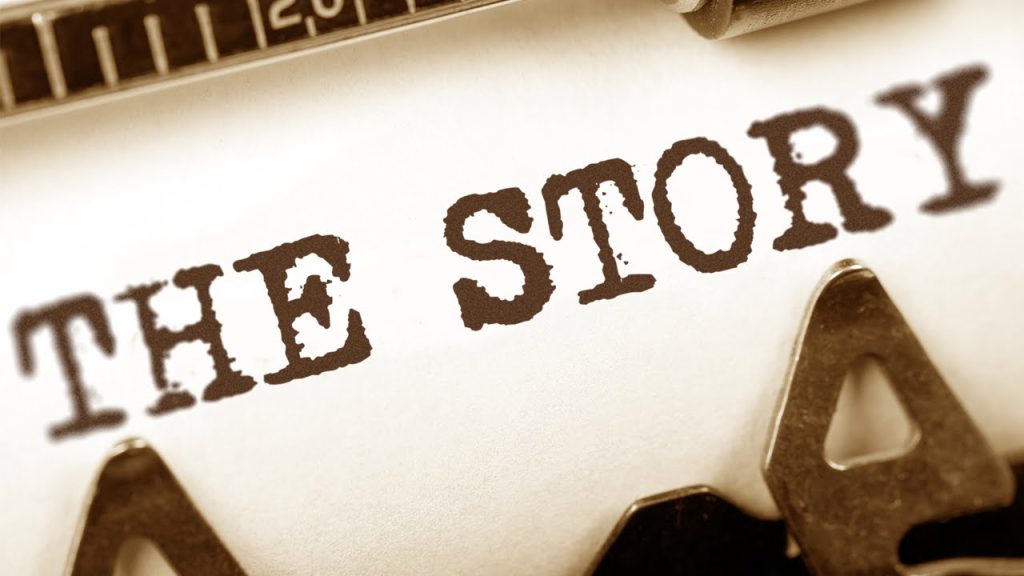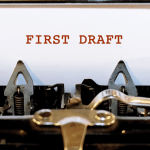 Learning How to Grow Your Business with Storytelling Changes Everything!
Learning How to Grow Your Business with Storytelling Changes Everything!
As a young child, I can remember the feeling of being allowed to stay up past my bedtime to listen to the stories the grownups were sharing. Each person had a unique way of unfolding their story, and soon I learned to anticipate the rhythm and cadence that would accompany each storyteller. I dreamed of the time when I would have my own stories to tell. Now I not only share my own stories, but also teach others how to grow your business with storytelling.
How a 1920s Soviet Psychologist Can Make You a Better Storyteller
Bluma Zeigarnik was born in 1901 in the Soviet Union. She began researching human memory during her studies at the Berlin School of Experimental Psychology in the 1920s. What she found can make you a better storyteller today, a hundred years after her discovery.
As a psychologist and psychiatrist, she wondered why people could remember some things and not others. She conducted an experiment that compared the memory of incomplete and completed tasks. She repeatedly found with a wide variety of subjects that incomplete tasks were much easier to recall than completed tasks. Psychologists call this the Zeigarnik Effect.
Think about that for a minute.
It means you can get people to hang on to your every word. This is a technique used by salespeople to keep their prospects asking questions. Have you ever watched a cliffhanger series where one episode ends with many questions that need to be answered? That is an example of the tendency of the human brain to crave finality and completeness.
It might drive you crazy until the next episode. What’s going to happen? Will the hero rush in to save the day, or is something terrible going to happen? When a TV series with cliffhangers at the end of each episode only airs once a week, you might rack your brain for seven full days in anticipation of what will happen next.
That’s the Zeigarnik Effect in action.
Tell Better Stories by Keeping Your Audience Guessing
What’s the object of any story? It’s to keep people reading, watching, or listening. That’s it. You want someone to stay emotionally invested throughout your entire story. If you’re using a story to sell a product, you don’t want them nodding off or clicking away halfway through. You need them to follow you to the call to action.
Perhaps you’re the manager of an underperforming department. Your ideas about improving production don’t seem to be getting across. The next time you’re instructing your crew, use open-ended questions. Get your employees to fill in the blanks.
This draws knowledge out of them. You don’t give them the whole story or lesson. Do this, and their brain will automatically and unconsciously start working to find answers.
Leave Questions Unanswered in Your Stories
When your audience constantly wonders about a hole you haven’t filled in, they pay attention. Whether you want to teach, entertain or inform, keeping your audience on their toes is a simple way to hold their attention.
Storytelling is a great way to get your message heard, regardless of your audience or objective. Telling stories with doses of unresolved conflicts and unanswered questions guarantees your audience will listen until the end.If You Want to Tell a Better Story, Just Look in the Mirror
People have been telling stories for a long time. Your earliest human ancestors told stories to pass on knowledge. They used them as a way to understand their surroundings and their lives. Stories are proven to convey a message, teach a lesson or pass on information and history.
You might want to teach your children a life lesson. Maybe you want them to stop leaving their rooms messy or to get better at doing their other chores. Perhaps you have a presentation you have to give at work. Maybe you’re writing for pleasure or for a living.
In all these cases, you need to look no further than the mirror to write a great story.
What Story Are You Trying to Tell?
You might be telling a story that has little relevance to your life. Even so, you’ll be able to take your own life experiences and weave them into the story. This makes your content relatable. Your audience can identify with you as a real person, even if the story you’re telling has unbelievable characters.
Look in the mirror. Look at yourself and your successes and failures. What personal experiences have you had that you can include in some way in the story you’re trying to tell? Look to your life for inspiration and ideas for new stories and make any story more human.
Incidentally, this works with fiction and nonfiction alike. It works best when you create a narrative from your personal experiences. Don’t be shy about painting yourself as an imperfect person. That’s what other people will relate to. Please talk about your failings, your conflict, and how you overcame it.
Does Your Audience Know You Very Well?
If your readers or listeners know something about you, mention it. This is another way to make your story carry weight. You are connecting with your audience. Again, you don’t personally have to be a character in your story or your message. You add positive and negative life experiences to give your content a feeling of reality.
Whether your audience knows you or not, try to turn your life’s lessons into narratives. Make these lessons into stories in and of themselves. Then tie them into the central theme or major plot of your bigger story.
This makes you more relatable and real to your audience. It also means quicker and easier writing because you’re working from a place of experience and familiarity.
Stephen King Says Do This to Become a Better Storyteller
Stephen King is the horror author of 65 novels, five nonfiction books, and over 200 short stories. You may know him for his bestselling novels “It,” “Carrie,” and “The Shining.” All told, King has sold more than 400 million copies of his novels.
He didn’t achieve that level of success without being able to write a compelling story.
Time and again, he has had the same piece of advice for would-be writers. It makes absolute sense when you think about it. He believes without this one practice, there is basically no way you will ever be a good writer.
Stephen King says that to be a better writer and storyteller, you have to do a lot of reading. Readers are leaders, as I’ve shared and written about many times.
That follows logically. If you want to be a great storyteller, either speaking or through the written word, you must read many great storytellers. It’s as simple as that. You can quickly discover what works and what doesn’t. You may have to start reading half a dozen books to find one that resonates with you. When you do, why did it connect with you?
Was the author very good at building characters, or were they an outstanding conversationalist? Some writers can create brilliant dialogue that keeps you moving through the page. You become convinced that this is a real conversation you are listening to. Others are so adept at fleshing out characters that you believe the person probably exists somewhere.
So, What Should You Be Reading?
What you read is up to you. Believe it or not, storytelling is not exclusive to fiction. Smart writers and speakers will weave stories into their nonfiction. This is because nothing captivates the attention of your audience like a story. I’ve personally done this with all of the books I have written and published.
Instead of blandly handing out information in nonfiction, they create a sympathetic principal character. There is some conflict this character has to overcome. Then everything is tied up neatly at the end.
Start Reading More to Become a Better Storyteller
If a book doesn’t hold your attention, put it down and choose another. The more you read, the more storytelling you expose your mind to. As you’re reading, why not take notes?
When you hit a section that really resonates with you, what did the storyteller do? The more you read and listen to great storytellers, the better storyteller you will become.
King and other authors will tell you that reading is an essential tool for writers. It’s not just something that can entertain or inform you. We’ll close with Stephen King’s own words. “If you don’t have time to read, you don’t have the time or the tools to write. Simple as that.”
If You’re Telling a Story, Why Does Your Audience Care?
Think of a movie you really liked when you were younger. You haven’t seen it for years, possibly decades. It pops up on your radar and happens to be coming on television tonight. You are ecstatic! Your mind goes back to your younger self. You remember exactly what made the movie so great when you were younger.
You schedule some time in front of your TV. All day long at work, you keep thinking about how much fun you will have tonight. You rush home, scarf down some food, and are seated in your favorite chair as the movie begins. You’re filled with anticipation. Your dedication to what you know will be a wonderful experience is such that you even turned off your phone.
The show starts. Several things happen that you don’t remember. That’s how time is; it robs us of some memories. Before you know it, you are waiting for the good stuff to happen. You stick in there and keep watching. So far, it’s not living up to expectations. Even so, you stick by your guns and watch the entire movie.
You click off your television and lean back in your chair. What happened? Where was the amazing movie you remembered from your youth? It wasn’t bad, but it certainly wasn’t great.
Then you realize that you’ve changed in so many ways over the years. You’re not the same person you were then. What you cared about then isn’t necessarily what you care about now. You’re no longer the perfect audience for that particular movie.
Get the Right Audience, and You Don’t Have To Have the Greatest Story
There’s something you should do before you write your story. Maybe you are writing a speech you must give, and you’ll employ storytelling to make it more engaging. That’s a smart move. Telling stories is an easy way to appeal to your listeners or readers.
No matter how good your story is, it will fall flat if you don’t have an audience that can relate to it.
It would be best to have a purpose that aligns with your audience. Whether fictional or true, your story has to appeal to the people who will hear it. Ask yourself, “Why would anyone care about this story? Who would be eager to hear it?” You line up your plot and your purpose with your audience.
You might think you have the greatest story to tell. You imagine everyone loving it and telling all their friends about it. That’s just not going to happen. Even the best-selling books of all time have only been read by a very small percentage of the people alive while they were published.
This means you should consider your audience before you write your story if you want it to be read. Then include things that are relevant to your audience and your story. This makes it relatable. You have a spellbound audience that can’t wait for your next story, presentation, or book. Choose the right audience, and you don’t have to have the best storytelling skills to be a success.Great Storytellers Use a Narrow Scope
Imagine you are telling a personal story. This is something that happened to you, something from your life. You might want to provide a lot of detail about everything happening to you then. You believe that will help set up the story and make it more relatable or engaging.
Sometimes this does exactly the opposite. Instead, you want to choose the main points and have a narrow focus. Don’t cover every factor in the world around your story, even if they influence what you’re talking about in some way. Pick and choose. Don’t give your audience too many things to think about.
It would be best if you had a central story arc.
A story arc is simply the path the story follows. We could explain it in great detail, but that’s what we’re talking about avoiding. Use the simplest path of your story and focus on that. Create a clear and simple beginning and end. Decide how the story moves from the beginning to the finale. What key plot events do you have to hit along the way? Remember, don’t try to talk about everything and anything.
Follow the Advice of Elmore Leonard
Elmore Leonard wrote dozens of crime fiction short stories and novels. some of my favorites include Get Shorty, Rum Punch, and 52 Pickup. His ability to create believable but unique characters was second to none. He created a dialogue that was compelling and engaging. You can’t stop reading his books because they don’t allow you to.
Leonard was a top-notch storyteller. He would turn the most mundane event or situation into a story you can’t put down. He accomplished this by having a narrow focus and a clear storyline. The price he gave to many a writer personally and in interviews was to keep the story simple.
Don’t add too many characters. Don’t talk about things you don’t need to talk about. If you feel like it’s fluff, then it is.
Read over your story when you’re done. Remove every single word that doesn’t absolutely need to be there. This speeds up the writing. It makes moving through the content easier for your readers or listeners. You’re not sandbagging them by talking about irrelevant and unneeded things.
Think about Your Experiences
Have you ever been reading something that caught your mind wondering? Was it difficult to stay engaged and involved? This might’ve been because the writer had too many things happening. You get pulled away from the central character and the main story. That’s a lack of focus, not on your part but on the writer’s part.
Remember, narrow the scope of your story to be a better storyteller. Create a simple and clear beginning and end, and only include the necessary plot elements in between. You’ll find not only are you writing better stories, but you’re writing them faster as well.
I’m author, publisher, and entrepreneur Connie Ragen Green and would love to connect with you. If you are new to the world of online entrepreneurship please check out my comprehensive training on how to set up Funnels That Click and learn how to gain an unfair advantage when it comes to building a lucrative online business.







Leave a Reply